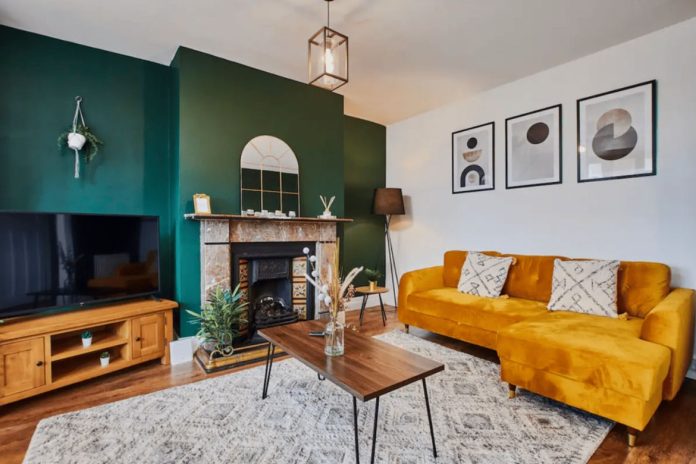Written By Zac Harrison
Yields for Airbnb can be 20%-30%.
But their are factors to consider before you think you can just list your standard buy to let property and think you are going to double the income of your property portfolio simply by listing on Airbnb for a higher rate of return, in this guide i am going to show you the pitfalls but also how to navigate the Airbnb market to give you the best rate of return in this competitive space.
Is my Airbnb profitability guaranteed?
No.
The profitability of your short-term rental depends on dozens of factors, with the location and seasonality being two of the most important ones, we are also going to walk you through how best to navigate this and pick properties that should out perform the market.
Understanding the Airbnb rental market
To begin, it’s essential to recognise the factors that have contributed to the rise of Airbnb. The sharing economy, fueled by the convenience and flexibility it offers, has transformed the traditional hospitality industry.
Focus on experience
Travelers now prioritise experiences over traditional hotel stays, seeking out unique, localised accommodations that provide a more authentic and immersive experience. This shift in consumer behaviour has opened up a vast and diverse market for Airbnb rentals, catering to a wide range of preferences and budgets.
Size
You need to be as far away from having a traditional hotel experience as possible, having a big Airbnb properties with lot’s of unique amenities will boost your Airbnb rate of return and keep you competitive in this market for the long term.
Factors that affect Airbnb return
Location
Location is a primary driver of Airbnb rental rates. Properties situated in desirable neighbourhoods, close to popular attractions, or in areas with high demand tend to command higher prices.
Consider the amenities and convenience your property offers, as well as the overall desirability of the location, when determining your rental rates.
Seasonality
Seasonality is another crucial factor to consider. Airbnb rental rates often fluctuate based on the time of year, with peak seasons commanding higher prices due to increased demand. Research the seasonal trends in your local market and adjust your pricing accordingly to capitalise on high-demand periods and maintain occupancy during slower seasons.
Weekday vs Weekend & Airbnb Rates
Additionally, the day of the week can impact Airbnb rental rates.
Weekends and holidays generally see higher demand, allowing you to charge premium prices.
Weekdays, on the other hand, may require more competitive pricing to attract guests. Carefully monitor booking patterns and adjust your rates to align with the fluctuating demand.
Researching the local market and competition
To maximise your Airbnb rate of return, it’s crucial to conduct thorough research on the local market and your competition. This will provide you with valuable insights into the prevailing trends, pricing strategies, and guest preferences in your area.
Look at your competition
Begin by analysing the Airbnb listings in your immediate vicinity. Examine the types of properties available, the range of amenities offered, and the pricing structures. Pay close attention to the occupancy rates, reviews, and the overall performance of similar listings. This information will help you identify the unique selling points of your property and determine how it stacks up against the competition.
Look at more then just Airbnb
Additionally, consider exploring other short-term rental platforms, such as Vrbo or HomeAway, to gain a more comprehensive understanding of the local market. Analyse the pricing, availability, and guest preferences across these platforms, as they may provide different insights that can inform your strategy.
Use short term rental software
This can be software like Airdna, that pools data from Airbnb. and converts it into a visual dashboard so you can make informed decisions about your chosen area.
Managing guest reviews and feedback
Positive guest reviews and feedback are essential for maintaining a successful Airbnb rental operation and maximising your rate of return. Airbnb’s platform places a strong emphasis on reviews.
To get maximum visibility on Airbnb’s platform you need a minimum of 4.8, listings that have a 4.2 and below are in the bottom 10% of listings and the top 20% of best reviewed listings get 50% of all Airbnb’s bookings.
Actively chase for reviews
Furthermore, actively soliciting reviews from satisfied guests can significantly boost your Airbnb rating and attract more bookings.
Encourage guests to leave reviews by sending a friendly post-stay message or providing a small incentive, such as a discount on a future stay.
Positive reviews not only improve your property’s visibility but also enhance its perceived value, allowing you to potentially command higher rental rates.
Look at guests feedback
In addition to reviews, pay close attention to guest feedback and comments provided through other channels, such as direct communication or social media. T
his information can provide valuable insights into the areas of your Airbnb rental experience that are performing well and those that may need improvement.
Utilise this feedback to continuously enhance your property, services, and overall guest experience.
If you are interested in hassle free Airbnb management for your holiday let property, get in touch and we can provide expertise on income, occupancy & make your investment hands off.









